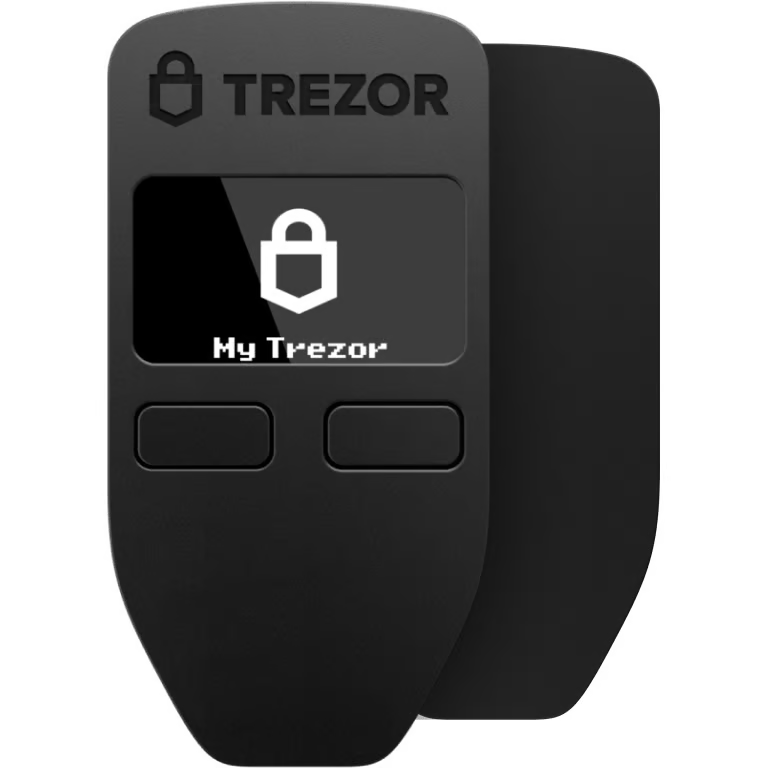Safe & secure Handshake wallet
Take control of your Handshake assets with complete confidence in the Trezor ecosystem.
- Secured by your hardware wallet
- Use with compatible hot wallets
- Trusted by over 2 million customers
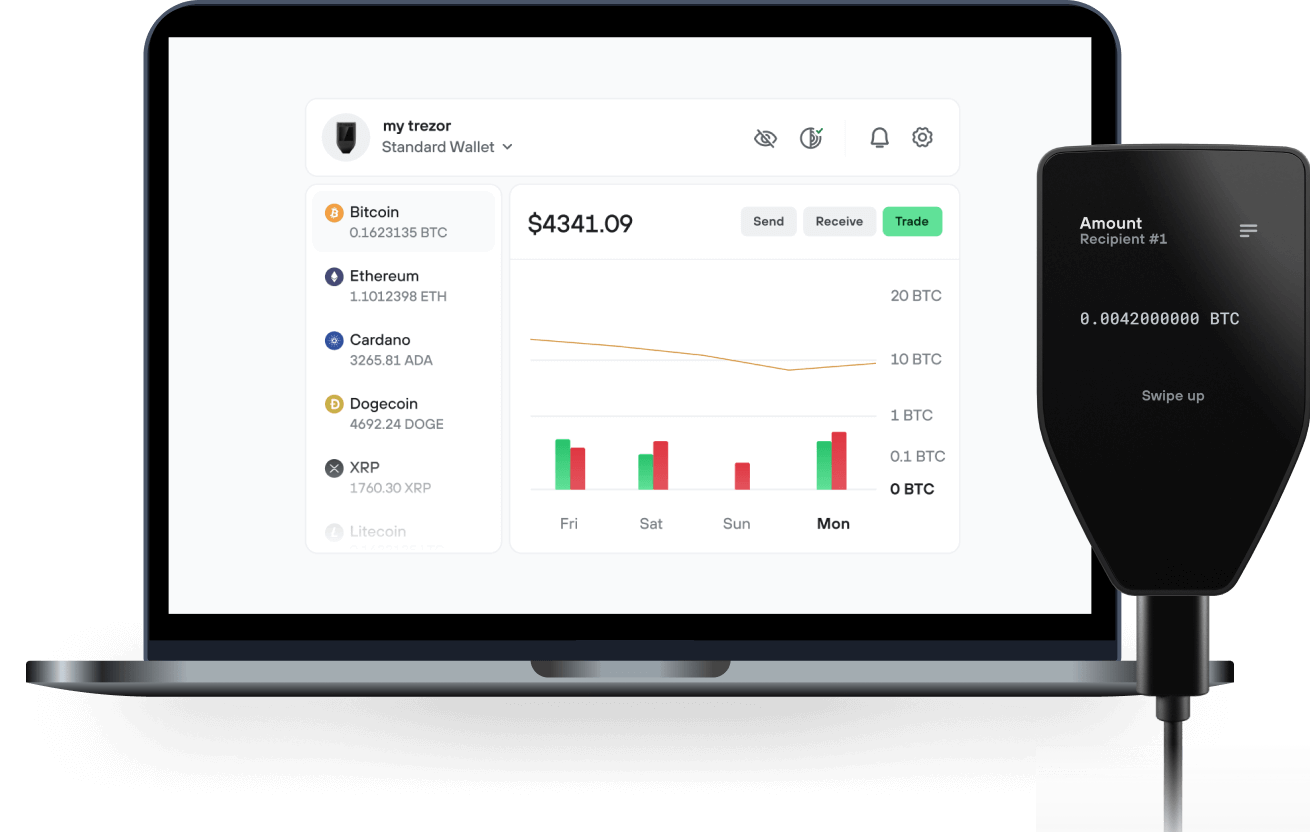
Send & receive your Handshake with the Trezor Suite app

Send & receive
Trezor hardware wallets that support Handshake
Sync your Trezor with wallet apps
Manage your Handshake with your Trezor hardware wallet synced with several wallet apps.
Trezor Suite
MetaMask
Rabby
Supported Handshake Network
- Ethereum
Why a hardware wallet?
Go offline with Trezor
- You own 100% of your coins
- Your wallet is 100% safe offline
- Your data is 100% anonymous
- Your coins aren’t tied to any company
Online exchanges
- If an exchange fails, you lose your coins
- Exchanges are targets for hackers
- Your personal data may be exposed
- You don’t truly own your coins
How to HNS on Trezor
Connect your Trezor
Open a third-party wallet app
Manage your assets
Make the most of your HNS
Trezor keeps your HNS secure
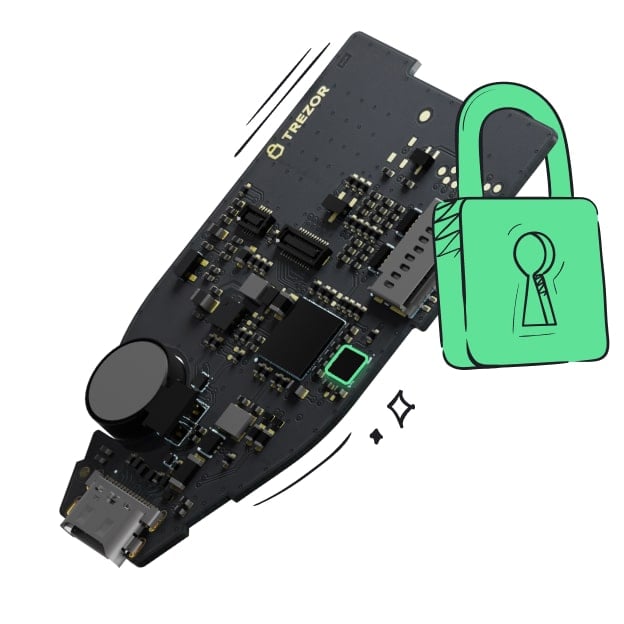 Protected by Secure Element
Protected by Secure ElementThe best defense against both online and offline threats
 Your tokens, your control
Your tokens, your controlAbsolute control of every transaction with on-device confirmation
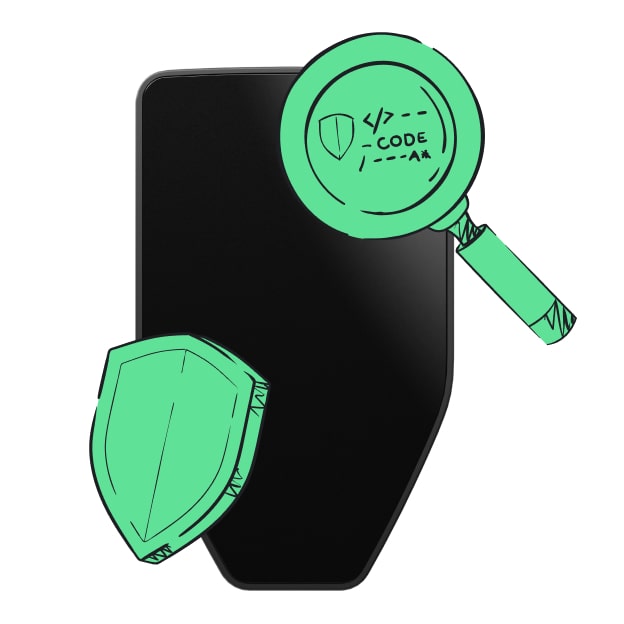 Security starts with open-source
Security starts with open-sourceTransparent wallet design makes your Trezor better and safer
 Clear & simple wallet backup
Clear & simple wallet backupRecover access to your digital assets with a new backup standard
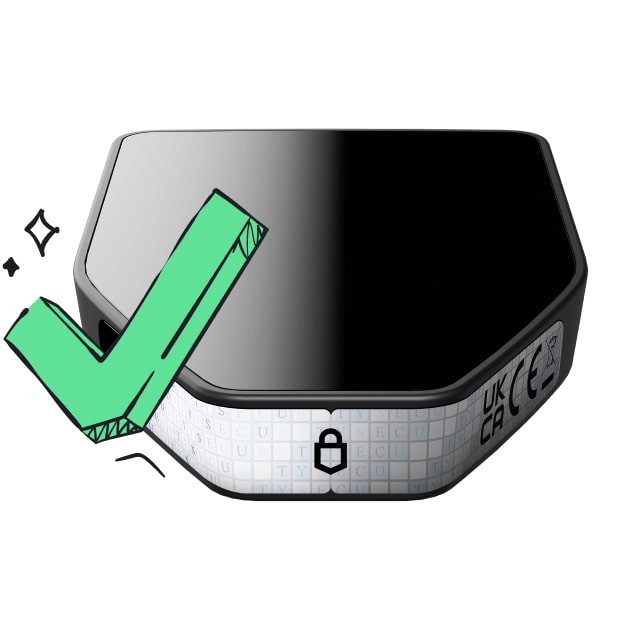 Confidence from day one
Confidence from day onePackaging & device security seals protect your Trezor’s integrity
Handshake is a decentralized, permissionless naming protocol where every peer is validating and in charge of managing the root DNS naming zone with the goal of creating an alternative to existing Certificate Authorities and naming systems. Names on the internet (top level domains, social networking handles, etc.) ultimately rely upon centralized actors with full control over a system which are relied upon to be honest, as they are vulnerable to hacking, censorship, and corruption. Handshake aims to experiment with new ways the internet can be more secure, resilient, and socially useful with a peer-to-peer system validated by the network's participants.
Handshake is an experiment which seeks to explore those new ways in which the necessary tools to build a more decentralized internet. Services on the internet have become more centralized beginning in the 1990s, but do not fulfill the original decentralized vision of the internet. Email became Gmail, usenet became reddit, blog replies became facebook and Medium, pingbacks became twitter, squid became Cloudflare, even gnutella became The Pirate Bay. Centralization exists because there is a need to manage spam, griefing, and sockpuppet/sybil attacks. Previous decentralized systems largely stopped working due to spam. If it were more costly to grief on the internet using decentralized systems, the need for trusted centralized corporations to manage these risks decrease. Internet services and platforms may benefit from building on top of a decentralized system which is specifically designed for resilience against sybil attacks. As we may redecentralize.
